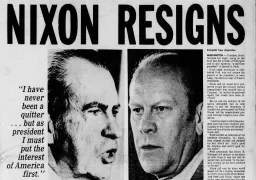The First Canned Beer Goes on Sale: A Revolution in Beverage History

A milestone in beverage history was achieved on January 24, 1935, as the first canned beer went on sale in Richmond, Virginia. This moment marked the beginning of a transformation in the way beer was packaged, distributed, and consumed. The innovation not only changed the brewing industry but also had far-reaching effects on consumer culture […]
Amelia Earhart’s Historic Solo Flight: A Landmark in Aviation History

On January 11th, 1935, Amelia Earhart made aviation history when she became the first person to fly solo from Hawaii to California. This daring feat added to her already impressive list of accomplishments and further cemented her status as one of the most pioneering figures in aviation. Earhart’s courage, skill, and determination would inspire generations […]
Elvis Presley: The Birth of the King of Rock and Roll

On January 8th, 1935, Elvis Presley, one of the most influential figures in the history of music, was born in Tupelo, Mississippi. From his humble beginnings to becoming the “King of Rock and Roll,” Elvis’ impact on music, culture, and entertainment would forever change the world. His distinctive voice, charisma, and revolutionary style bridged the […]
Founding of Alcoholics Anonymous
Alcoholics Anonymous (AA) was founded on June 10, 1935, by Bill Wilson and Dr. Bob Smith in Akron, Ohio. The establishment of AA introduced a revolutionary peer-support program aimed at helping those suffering from alcoholism. The organization’s Twelve-Step program has not only provided a framework for recovery for millions of individuals worldwide but has also […]
Babe Ruth Retires
On June 2, 1935, George Herman “Babe” Ruth, one of the most iconic figures in baseball history, retired from the sport. His retirement marked the end of an illustrious career during which he transformed baseball with his impressive hitting power, setting records for home runs, RBIs, and slugging percentage that stood for decades. Ruth’s larger-than-life […]
The Death of Lawrence of Arabia
T.E. Lawrence, better known as Lawrence of Arabia, died on May 19, 1935, from injuries sustained in a motorcycle accident. Lawrence had become legendary for his role during the Arab Revolt against Ottoman Turkish rule during World War I, and his experiences were immortalized in the film “Lawrence of Arabia.” A scholar, writer, and archaeologist, […]
“Black Sunday” Devastates the Great Plains
On April 14, 1935, a devastating dust storm known as “Black Sunday” strikes the Great Plains during the Dust Bowl era, engulfing the region in darkness and wreaking havoc on farms and communities. The storm, fueled by severe drought and soil erosion caused by intensive farming practices, serves as a stark reminder of the environmental […]
FDR Signs Emergency Relief Appropriation Act
President Franklin D. Roosevelt signs the Emergency Relief Appropriation Act into law, authorizing additional funding for New Deal programs aimed at providing relief to Americans suffering from the effects of the Great Depression. The legislation marks a crucial step in Roosevelt’s efforts to address economic hardship and implement reforms to stimulate recovery and alleviate poverty.
The Luftwaffe is Established as the German Air Force
On February 26th, 1935, Nazi Germany’s leader Adolf Hitler ordered the formation of the Luftwaffe, the German Air Force. This marked a significant step in the militarization of Germany and laid the groundwork for the air campaigns of World War II.
Hoover Dam

The Hoover Dam, one of the engineering marvels of the 20th century, was dedicated, providing hydroelectric power and water resources to the American Southwest.
